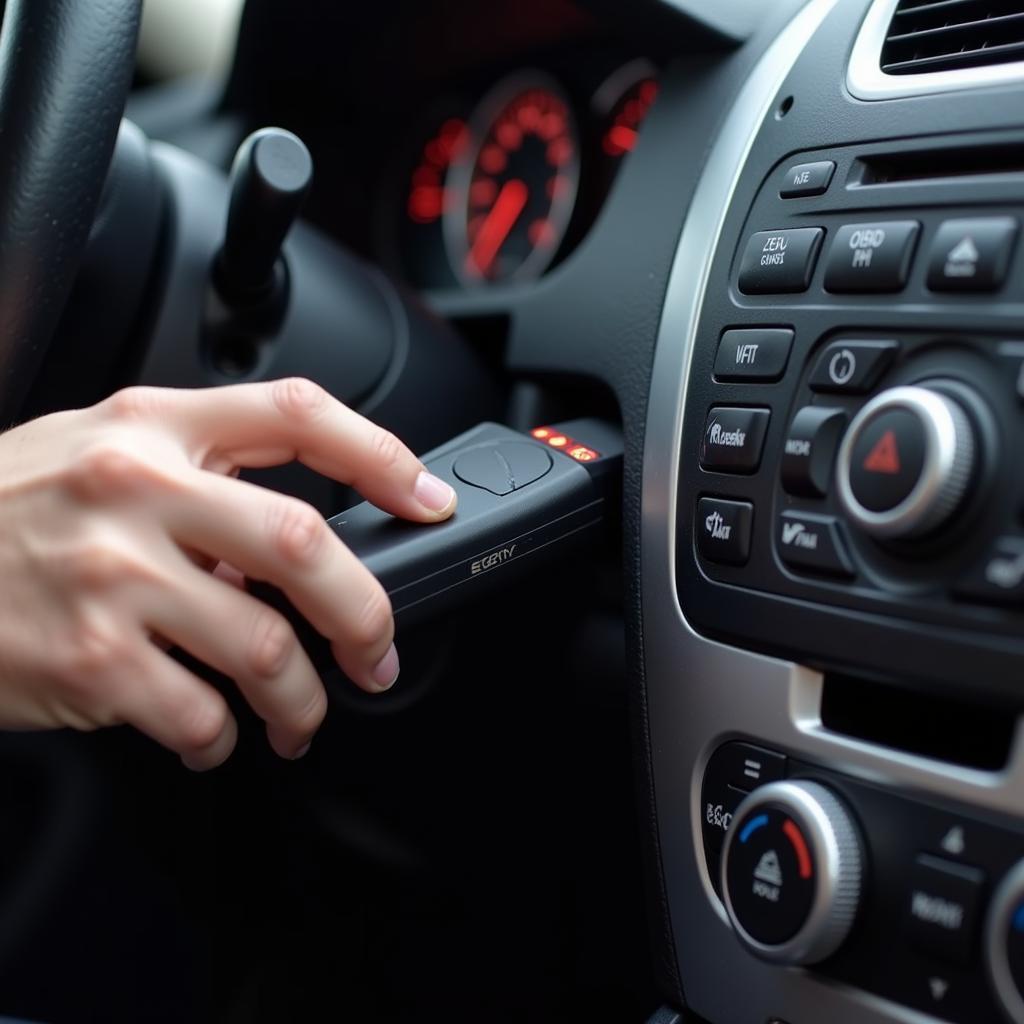Understanding the inner workings of your car used to require a trip to the mechanic and a hefty bill. Today, the Best Home Car Diagnostic Tools empower you to understand your vehicle’s health right from your garage. Whether you’re met with an unexpected check engine light or simply want to stay ahead of potential issues, these tools offer a window into your car’s computer system.
Why Invest in a Home Car Diagnostic Tool?
Gone are the days of relying solely on mechanics to decipher cryptic dashboard warnings. Here’s why a home car diagnostic tool is becoming a must-have for car owners:
- Save Money: Regular diagnostic checks at a mechanic can quickly add up. A home tool allows you to identify minor issues before they escalate, potentially saving you significant costs in the long run.
- Empowerment: No more feeling lost when your car acts up. A diagnostic tool puts you in the driver’s seat, providing valuable insights into your car’s performance.
- Convenience: Diagnose car troubles on your own time and schedule. No need to wait for appointments or deal with inconvenient trips to the shop.
- Preventative Maintenance: Regularly scanning your car can help you stay ahead of potential problems, ensuring optimal performance and longevity.
 Mechanic using a home car diagnostic tool
Mechanic using a home car diagnostic tool
Choosing the Right Diagnostic Tool for Your Needs
With a plethora of options available, selecting the best home car diagnostic tool can feel overwhelming. Consider these key factors:
1. Vehicle Compatibility: Ensure the tool you choose is compatible with your car’s make, model, and year. Most modern vehicles use the OBD-II (On-Board Diagnostics II) standard, but older models might require specific adapters.
2. Features: Determine what level of information you need. Some basic tools read and clear error codes, while more advanced options offer live data streams, sensor readings, and even ABS and airbag diagnostics. Consider your comfort level and how much detail you’re seeking.
3. User Interface: Look for a tool with an intuitive and user-friendly interface. Many tools connect wirelessly to your smartphone or tablet, offering clear visuals and easy navigation.
4. Price: Home car diagnostic tools range from budget-friendly options to more advanced (and pricier) professional-grade devices. Set a budget that aligns with your needs and usage.
5. Brand Reputation: Opt for reputable brands known for accuracy, reliability, and helpful customer support. Reading online reviews and comparing features can guide you toward a trustworthy option.
Understanding Car Diagnostic Codes
Once you’ve scanned your car, you’ll likely encounter diagnostic trouble codes (DTCs). These codes are standardized across vehicles and provide clues about the potential issue.
Types of DTCs:
- P Codes: Refer to powertrain issues, encompassing the engine, transmission, and emissions systems.
- B Codes: Indicate problems with the body, including airbags, power windows, and central locking.
- C Codes: Point to issues within the chassis, such as ABS, traction control, and electronic suspension.
- U Codes: Relate to network communication problems between different modules in the car.
While deciphering these codes might seem daunting, resources like the DiagFixPro website offer comprehensive explanations and troubleshooting guidance for various DTCs.
Beyond Basic Diagnostics: Advanced Features
For those seeking deeper insights into their car’s performance, some home car diagnostic tools offer a suite of advanced features:
- Live Data Streaming: Monitor real-time data from various sensors, such as engine RPM, coolant temperature, oxygen sensor readings, and more. This allows you to analyze your car’s performance in different driving conditions.
- Graphing and Logging: Visualize data trends over time, aiding in identifying intermittent issues and understanding how your car behaves under specific conditions.
- ABS and Airbag Diagnostics: Some advanced tools can access and diagnose issues within the anti-lock braking system (ABS) and airbag systems, potentially saving you a trip to a specialized mechanic.
- Emissions Readiness Check: Verify if your vehicle’s emissions systems are functioning correctly before taking an emissions test.
Making Informed Decisions with DiagFixPro
Investing in the best home car diagnostic tool is a smart move for any car owner. By taking control of your car’s health, you can save money, gain peace of mind, and ensure your vehicle runs smoothly for years to come.
DiagFixPro is your trusted resource for all things car diagnostics. Explore our website for in-depth reviews, insightful articles, and expert guidance to help you make the right choice.
Need further assistance? Contact our team of car diagnostic specialists via WhatsApp at +1(641)206-8880 or email us at [email protected]. We’re available 24/7 to help you get back on the road with confidence.

Leave a Reply